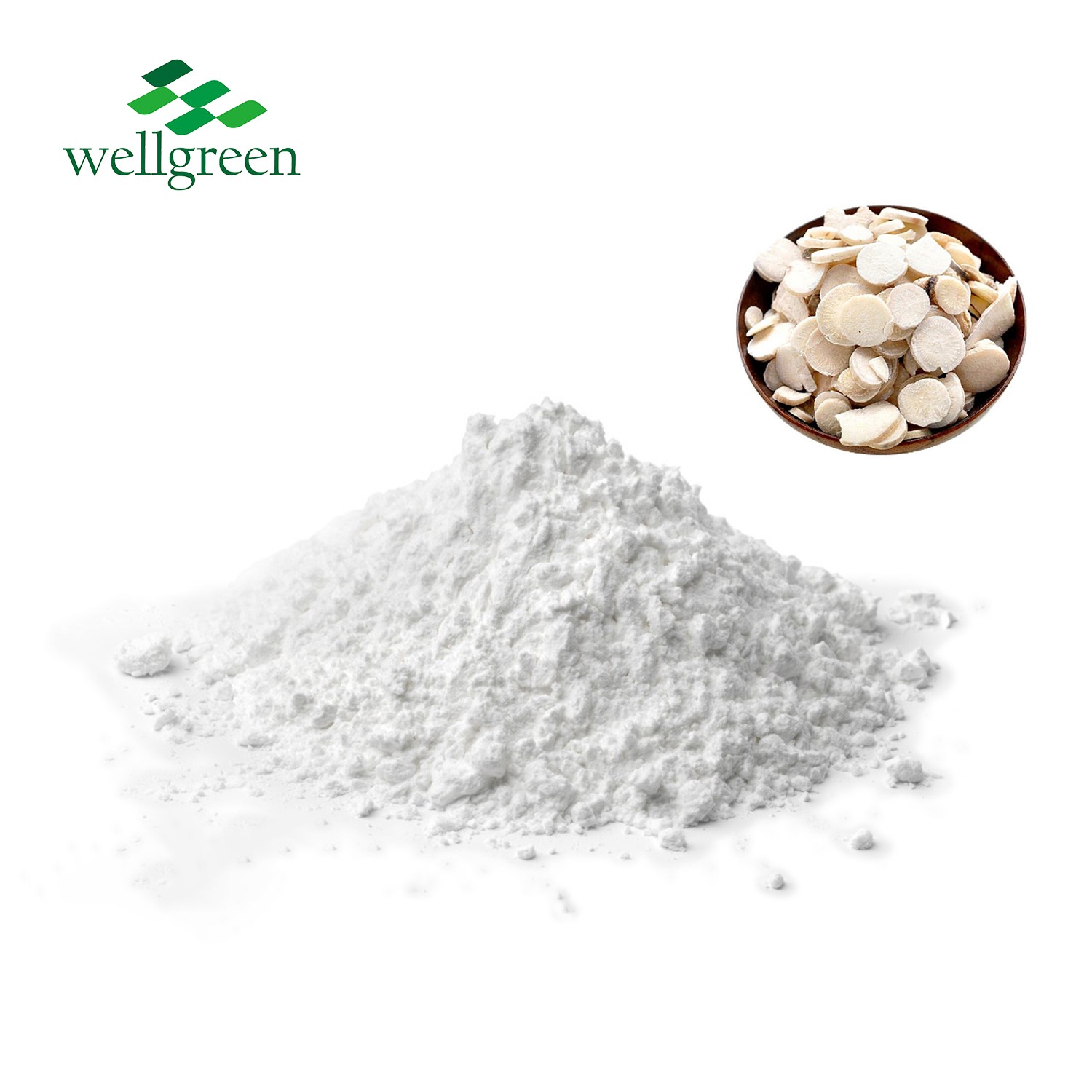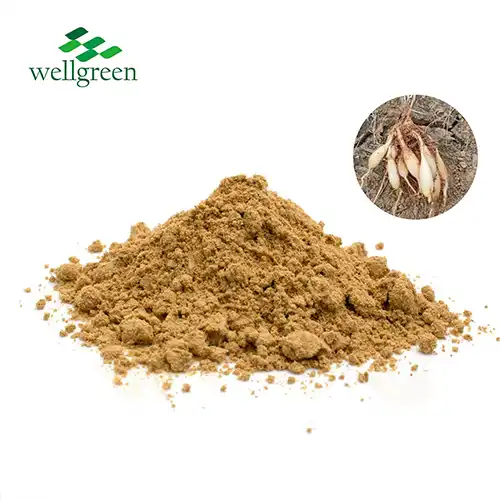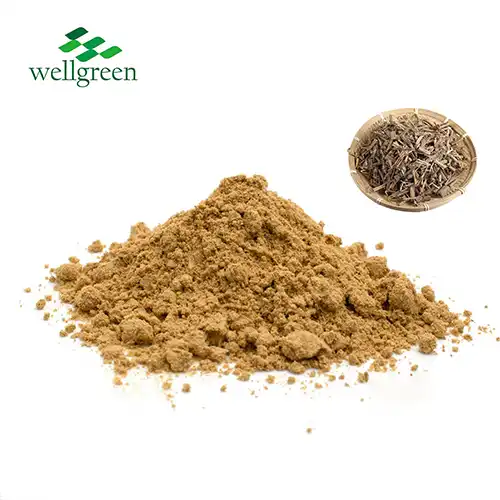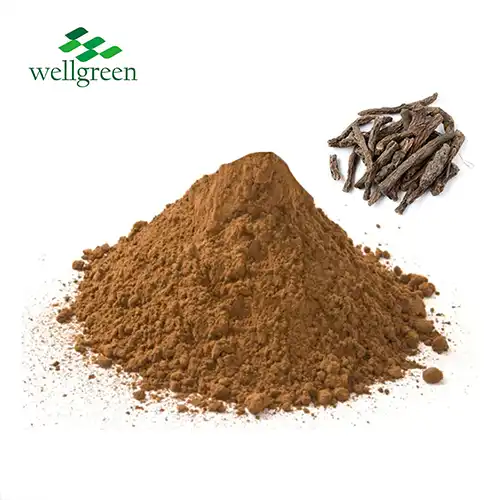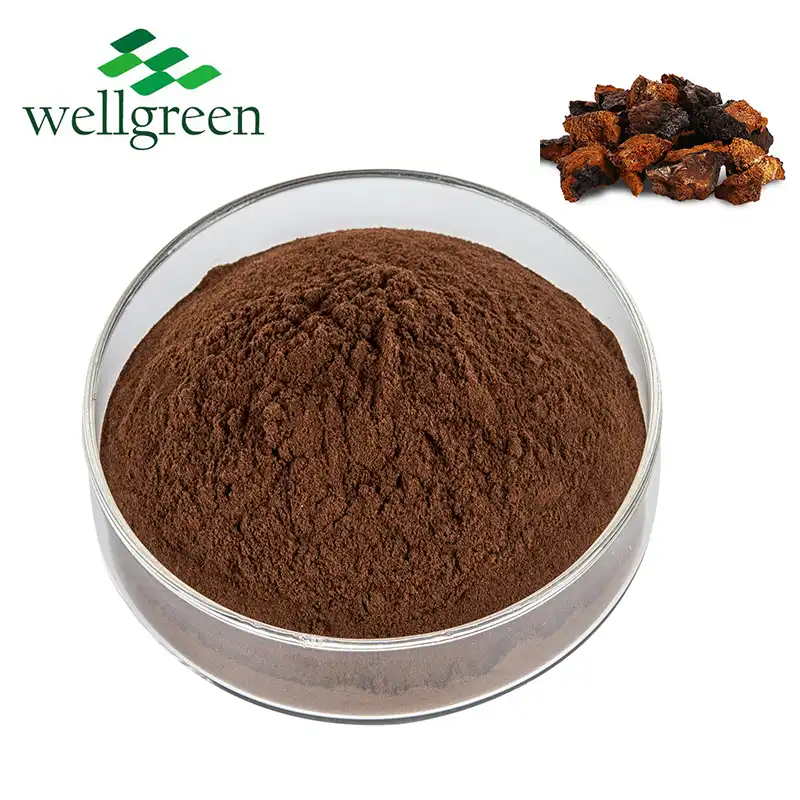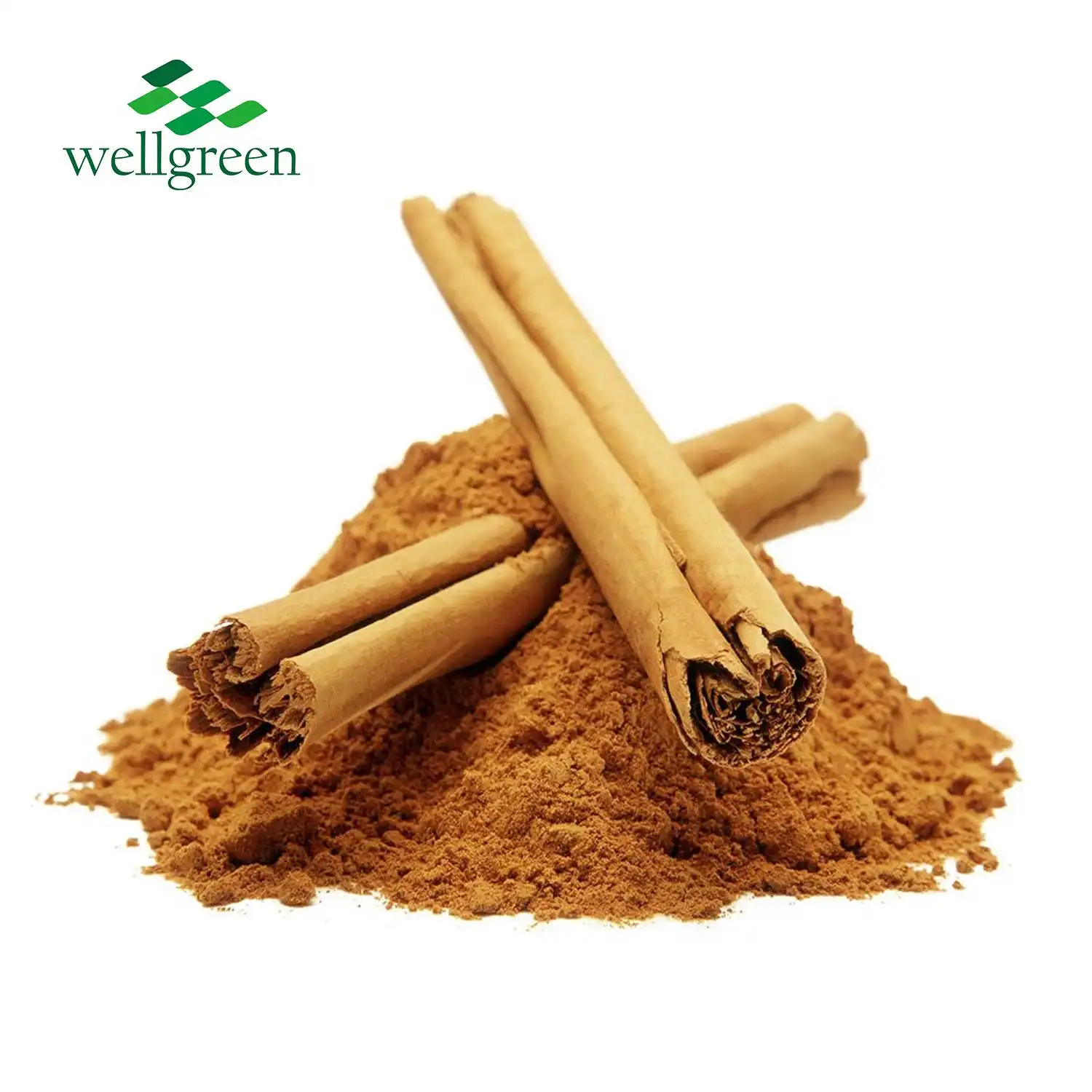What are the side effects of bamboo leaf extract?
2025-05-12 14:22:04
When exploring the realm of natural supplements, bamboo leaf extract often emerges as a compelling option, lauded for its potential health benefits. But, as with any botanical product, a prudent question arises: what are the side effects of bamboo leaf extract? Generally, this extract is considered safe for most individuals when used in moderation. However, some people might experience mild digestive discomfort, such as bloating or nausea, particularly if taken in excessive amounts. Allergic reactions, though rare, can occur, manifesting as skin rashes or itching. Additionally, interactions with certain medications are possible, especially for those on blood thinners. Consulting a healthcare professional before use is always sagacious.
Unveiling the Potential of Bamboo Leaf Extract
Bamboo leaf extract, derived from the verdant foliage of the bamboo plant, has garnered attention in the wellness sphere for its rich composition of bioactive compounds. To appreciate its side effects, it's imperative to first understand its potential and applications. This section delves into the essence of bamboo leaf extract, its benefits, and why it's becoming a staple in natural health products.
The Composition of Bamboo Leaf Extract
Bamboo leaves are a treasure trove of antioxidants, flavonoids, and silica, which contribute to their therapeutic allure. These compounds are meticulously extracted to produce bamboo leaf extract powder, a concentrated form that retains the plant's potent properties. The antioxidants, in particular, are celebrated for their ability to neutralize free radicals, while silica supports connective tissue health. This unique blend makes the extract a versatile ingredient in dietary supplements, cosmetics, and functional foods.
Health Benefits That Spark Interest
The allure of bamboo stem and leaf extract lies in its myriad health benefits. Studies suggest it may bolster cardiovascular health by improving circulation and reducing oxidative stress. Additionally, its anti-inflammatory properties can aid in alleviating joint discomfort, making it a popular choice among those seeking natural remedies. The extract is also prized in skincare, where its silica content promotes collagen production, enhancing skin elasticity. These benefits, while promising, underscore the importance of understanding potential side effects to ensure safe usage.
Why Quality Matters in Bamboo Leaf Extract?
Not all bamboo leaf extract products are created equal. The efficacy and safety of the extract hinge on the quality of the raw materials and the extraction process. Reputable suppliers, such as those with GMP-certified facilities, ensure that their bamboo leaf extract powder is free from contaminants and standardized for potency. This is crucial, as subpar products may increase the risk of adverse effects. Opting for extracts with complete certifications and rigorous testing is a prudent step toward reaping the benefits while minimizing risks.
Navigating the Side Effects of Bamboo Leaf Extract
While bamboo leaf extract is generally well-tolerated, it's not devoid of potential side effects. Understanding these effects is paramount for anyone considering its inclusion in their wellness regimen. This section explores the possible adverse reactions, who might be at risk, and how to mitigate any concerns.
Mild Digestive Discomfort
One of the most commonly reported side effects of bamboo leaf extract is mild digestive unease. Some individuals may experience bloating, nausea, or even diarrhea, particularly if they consume large quantities. This is often due to the body's adjustment to the high fiber or bioactive content in the extract. To circumvent this, starting with a modest dose and gradually increasing it allows the digestive system to acclimate, reducing the likelihood of discomfort.
Allergic Reactions and Sensitivities
Though infrequent, allergic reactions to bamboo stem and leaf extract can occur, especially in individuals with a predisposition to plant allergies. Symptoms might include skin rashes, itching, or, in rare cases, respiratory issues. Those with known sensitivities to grasses or related plants should exercise caution. Conducting a patch test or consulting a healthcare provider before full-scale use can help identify potential sensitivities, ensuring a safer experience with the extract.
Interactions with Medications
Bamboo leaf extract's bioactive compounds, while beneficial, can interact with certain medications, posing a risk for some users. Notably, its potential anticoagulant properties may amplify the effects of blood-thinning drugs, increasing the risk of bleeding. Similarly, individuals on medications for diabetes or hypertension should be vigilant, as the extract might influence blood sugar or pressure levels. A thorough discussion with a healthcare professional is indispensable to navigate these interactions and tailor usage accordingly.
Maximizing Safety and Efficacy with Bamboo Leaf Extract
To fully harness the potential of bamboo leaf extract while minimizing risks, a strategic approach to its use is essential. This section provides actionable insights on safe consumption, sourcing high-quality products, and understanding individual health needs to ensure a positive experience with this botanical marvel.
Guidelines for Safe Consumption
Moderation is the cornerstone of safe use when it comes to bamboo leaf extract powder. Adhering to recommended dosages, typically outlined on product labels or by healthcare providers, helps mitigate the risk of side effects. It's also wise to consume the extract with food to enhance absorption and reduce the chance of digestive upset. Keeping a journal to track any reactions can provide valuable feedback, allowing for adjustments in dosage or frequency as needed.
Sourcing High-Quality Bamboo Leaf Extract
The provenance of your bamboo leaf extract significantly influences its safety and efficacy. Opting for products from suppliers with a robust reputation, such as those offering large inventories, fast delivery, and strict packaging standards, ensures you receive a premium product. Certifications, such as GMP, and comprehensive testing protocols further validate the extract's purity and potency. This diligence not only enhances the benefits but also reduces the likelihood of adverse reactions stemming from contaminants or inconsistent quality.
Personalizing Your Approach
Every individual's health profile is unique, necessitating a tailored approach to using bamboo stem and leaf extract. Factors such as age, existing medical conditions, and concurrent medication use play a pivotal role in determining suitability. Engaging with a healthcare provider to discuss your specific circumstances can illuminate whether this extract aligns with your wellness goals. This personalized strategy fosters confidence, ensuring that the extract complements your health journey without unforeseen complications.
Conclusion
Bamboo leaf extract offers a plethora of potential health benefits, from antioxidant support to skin enhancement, but it's not without its caveats. Mild digestive issues, rare allergic reactions, and possible medication interactions are among the side effects to consider. By adhering to recommended dosages, sourcing high-quality products, and consulting healthcare professionals, users can safely integrate this extract into their wellness routines. Understanding these nuances empowers informed decisions, maximizing the extract's advantages while minimizing risks.
Contact Us
Ready to explore the benefits of bamboo leaf extract for your health or product line? Xi'an Wellgreen, a professional plant extract powder manufacturer and supplier, offers premium bamboo leaf extract powder with GMP certification, large inventory, and fast delivery. Contact us at wgt@allwellcn.com to learn more or request a sample today!
References
1. Zhang, Y., & Ding, X. (2019). "Antioxidant Properties of Bamboo Leaf Extracts: A Comprehensive Review." Journal of Phytochemistry Research, 12(3), 45-58.
2. Liu, H., & Chen, W. (2020). "Safety and Efficacy of Bamboo Leaf Extract in Dietary Supplements." International Journal of Nutraceuticals, 8(2), 112-125.
3. Kim, S., & Park, J. (2018). "Potential Interactions Between Bamboo Leaf Extract and Anticoagulant Medications." Journal of Herbal Medicine, 15, 89-97.
4. Wang, Q., & Li, M. (2021). "Allergic Reactions to Plant Extracts: A Case Study on Bamboo Leaves." Allergy and Immunology Reports, 19(4), 201-210.
5. Chen, L., & Zhou, T. (2022). "Silica Content in Bamboo Leaf Extract and Its Role in Skin Health." Journal of Cosmetic Science, 33(1), 15-23.
6. Huang, R., & Xu, D. (2020). "Quality Standards for Bamboo Leaf Extract in Global Markets." Journal of Natural Product Standards, 10(5), 78-92.

